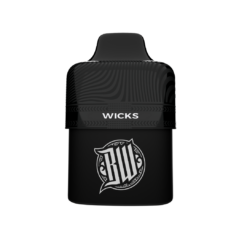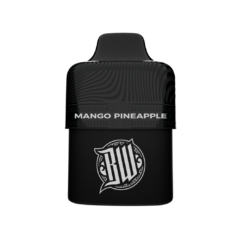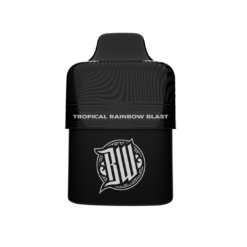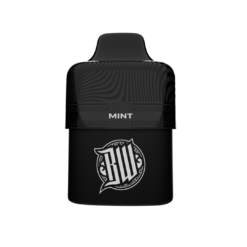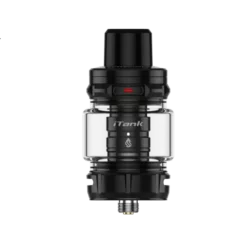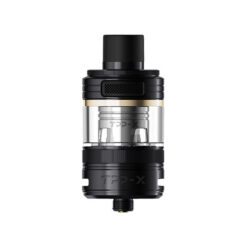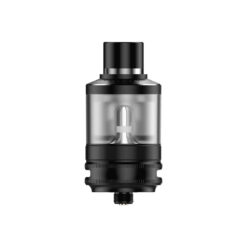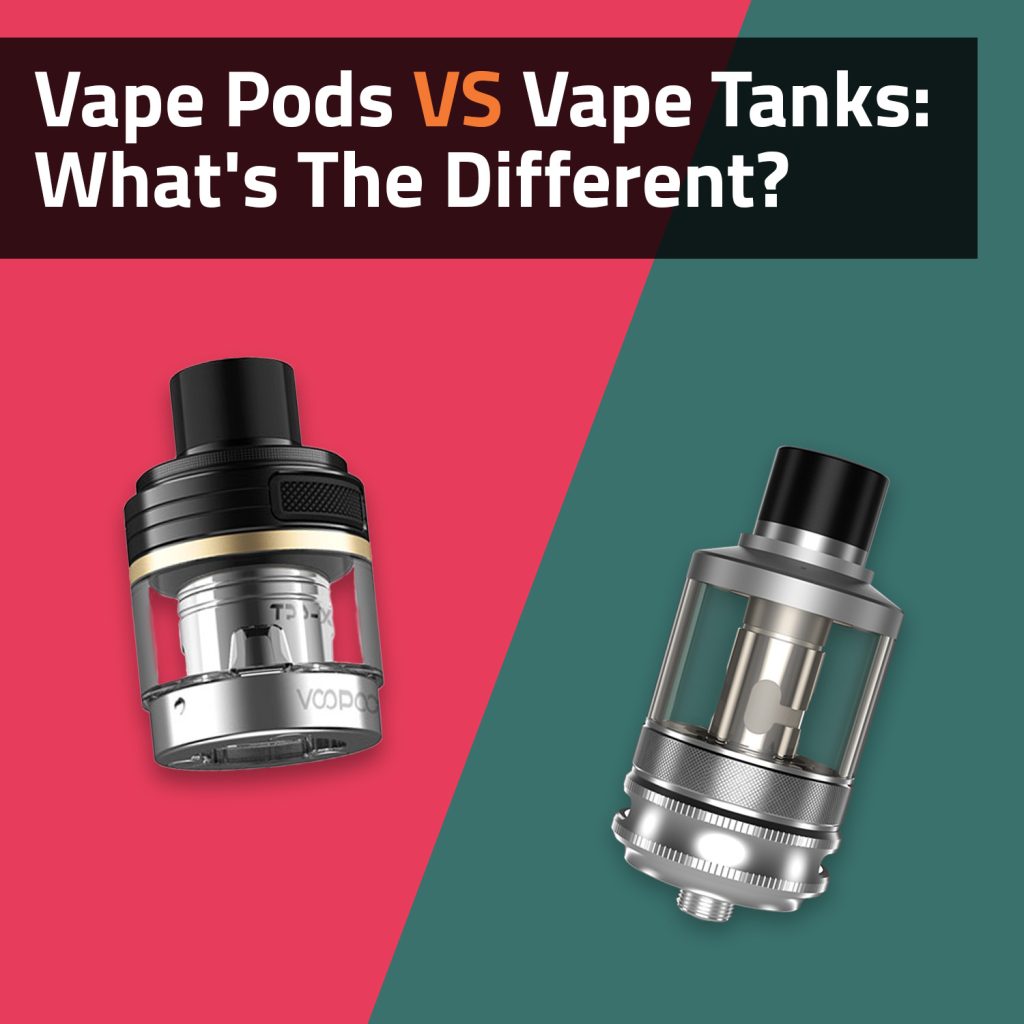Vaping has exploded in popularity over the last decade, with a wide range of devices now available to cater to every preference. Two of the most popular options are vape pods and vape tanks, which offer different advantages and drawbacks depending on the user’s needs. Whether you’re a seasoned vaper or just getting started, understanding the pros and cons of each device is crucial to finding the perfect vape device for you.
The Similarities Between Vape Pods And Vape Tanks
Vape pods and vape tanks have the same essential purpose: they house your e-liquid so that you can vape. Both vape pods and vape tanks:
- Contain coils/atomizers
- House e-liquid
- Have a mouthpiece or drip tip that you can vape from
What Are Vape Pods?
Vape pods are relatively new to the vaping market. When pods hit the market, they gained notoriety as easy to use devices that were much more sleek than the bigger and more powerful vaping systems.
It all started when the JUUL device came along. The device came with pre-filled pods containing e-liquid, a coil, and a mouthpiece. These pods were also made of plastic while bigger devices had glass pieces and broke more easily.
These units were designed to be self-contained and disposable, and could be easily clipped onto the battery without any hassle. The main objective was to simplify the vaping experience, eliminating the need to deal with batteries, coils, or tanks that could potentially leak.
Another reason why the JUUL stood out was due to its use of nicotine salts. Nic salts allowed e-liquid to be burned at a lower heat while still delivering a satisfying throat hit. The nicotine in these salts are also absorbed into the bloodstream faster, making it more effective at satisfying nicotine cravings.
Essentially, the introduction of nic salts enabled vapers to move away from using complex and costly devices. This innovation gained widespread popularity and caught the attention of other manufacturers. Consequently, this marked the beginning of what could be referred to as “The Age of the Pod”, according to potential future vaping historians.
By 2017, vaping devices started getting smaller. This is because nic salts do not require high powered devices to produce satisfying hits. Vapers soon embraced these lighter and more discreet devices.
Innovation soon sparked and technology forked into two areas: closed and open system pod mods.
Closed System Pod Mods
Closed system pods or pre-filled vape pods come with a built in coil and are already filled with e-liquid. It is very easy to pop them in and out of your device.
You cannot refill closed system pods and you cannot replace their coils. This type of pod system is designed to be used and then disposed of.
Open System Pod Mods
Open system pod mods are made to be refilled and allow the user to switch out coils. Some open system pod mods come with locked in coils, so being able to change your coils is not always an option.
In order to determine whether a vape pod starter kit is the right choice for you, it’s important to carefully consider the pros and cons.
Pros Of Vape Pods
- Easy to use: When it comes to ease of use, vape pods have a clear advantage. Pre-filled pods can be easily clicked onto a device that charges via USB, making the process simple and straightforward. Open pod systems require the user to fill the pod, which is also a relatively easy process. This streamlined design was intended to create the least amount of hassle for people who are trying to quit smoking
- Leak-proof design: While replaceable parts in vape tanks make them more prone to leaking, vape pods are built with materials like plastic or glass, and clips or magnet connections. This makes them less likely to leak
- Lower maintenance: Vape pods also require lower maintenance than tanks, with open pod systems being considered “all in one” devices that only need to be refilled and used until the coil needs replacing. Coils are easy to replace in vape pods, often requiring only a simple pop in and out
- Compact design: Vape pods are generally smaller and lighter, making them pocket-friendly and easy to carry around. Tanks remain much more bulky than pods
- Draw activation: Most vape pods are draw-activated, meaning they simulate the sensation of smoking more closely. This setup makes the device fire when you inhale, but some pod devices also come with a fire button
- Cost effective: Vape pods are generally more cost-effective than tanks due to their construction materials. Pods made out of plastics are less expensive than tanks made of metal and glass, and the focus on accessibility means that whatever causes the least friction for the buyer is prioritised
Cons Of Vape Pods
- Sustainability: Pre-filled pods are disposable and generate a significant amount of plastic waste that ends up in landfills or the ocean. Even pods with replaceable coils are not a long-term solution, lacking the durability of well-made tanks
- Long term expenses: Replacing pods more frequently adds to the overall cost, although refillable pods sold as closed units with coils can mitigate this difference
- Shorter battery life: Pod devices have smaller batteries that provide shorter battery life compared to tank devices, although they do charge quickly
- A lack of customization: Pods are designed to be simple, with little customizability and a focus on mouth-to-lung vaping, which is closest to smoking a cigarette
- Most suitable for MTL: While some pods do offer both mouth-to-lung and direct-to-lung vaping options, most lack adjustable airflow
- No replaceable batteries: Most pod devices do not come with replaceable batteries, limiting their use when out and about
What Are Vape Tanks?
Not too long ago, tanks were the prevailing option in the vaping world. The most attractive aspect of vape tanks is their versatility, as many utilise a 510 connection. This type of connection, which screws onto the device, allows users to match the tank with almost any mod they choose.
Depending on the tank, users can have a coil for mouth-to-lung (MTL) or direct-to-lung (DTL) vaping. Since they can screw into various devices, you can alter your vape settings as much as you like. Tanks also generally use glass instead of plastic, and many users claim that this enhances the flavour.
Different Parts Of A Vape Tank
Vape tanks are made of a few different components. They generally contain a:
- Tank: The tank is usually made from glass or plastic. This is where e-liquid is stored
- Drip tip: The mouthpiece
- Coil/atomizer
- Chimney: This part attaches to the coil and provides a airway through the tank
- Bottom section: This part screws into the mod and is most often connected by screwing in a 510 connection
Different Types Of Tanks
Over the years, vapers have used several types of tanks. Advancements in technology have made them more versatile and user-friendly. A significant improvement was that all components of the tanks, not just the coils, could be replaced. This was a welcome change since tanks were not inexpensive, and replacing a lost or broken part meant buying a new tank altogether
With the evolution of the industry, there came a wide variety of coils that enabled direct-to-lung vaping. Additionally, tanks became easier to refill, unlike the old days of using syringes to load tanks, which was a messy and annoying process.
MTL Vs. DTL Tanks
Some vapers prefer to differentiate between MTL and DTL tanks; however, the main difference lies in the coil that you place into the tank.
- For MTL vaping, a higher resistance coil such as 1 or above is appropriate
- Sub-ohm coils which are below 1 Ω, are used for DTL vaping
Additionally, the mouthpiece is a significant difference. DTL tanks are typically equipped with a wider mouthpiece that suits this vaping style, while MTL tanks have a narrower mouthpiece that emulates smoking a cigarette.
If you’re uncertain about whether an advanced starter kit is suitable for you, consider having a look at the advantages and disadvantages of a vape tank.
Pros Of Vape Tanks
- Allows direct-to-lung (DTL) vaping: DTL vaping involves inhaling vapour directly into your lungs and requires a sub-ohm coil tank. This vaping style is favoured by some, but only achievable with a low resistance coil and a high-powered device
- Dense cloud production: Although sub-ohm vaping is achievable with a few pods by utilising appropriate coils, it is primarily associated with vape tanks. Those colossal clouds originate from sub-ohm tanks and are perfect for vaping tricks
- Replaceable parts: The replaceable parts of vape tanks make them a popular choice among vapers. Most tanks allow for the replacement of glass, drip tips, rubber sealings, and the bottom part that screws into the mod. This feature ensures that a single tank can last for a good amount of time
- Customizability: Vape tanks offer more than just the versatility of using different coils and mouthpieces, they also allow for the building of custom RDA coils using materials such as wire and cotton
Cons Of Vape Tanks
- Extra expenses: Tanks use quality materials such as glass, making them more expensive in general. This also boosts the cost of replacing tanks
- Complexity and maintenance: Vape pods are designed to be user-friendly, whereas vape tanks require more effort in terms of operation and maintenance. Although they aren’t too complex, there is a learning curve and certain aspects to grasp if you want to ensure a consistent great taste
- Wear and tear: Over time and with use, vape tanks will be prone to leakage. However, with proper maintenance and care, tank leakage can be minimised
- Less portable: On average, tanks and the mods they attach to are heavier and bulkier compared to pods. While there are variations within these different types of hardware, tanks tend to take up more space in your pocket
-
Vaporesso iTank 2 Sub-Ohm (8ml)
R550.00Original price was: R550.00.R440.00Current price is: R440.00. -
Voopoo TPP X Pod Tank
R340.00Original price was: R340.00.R199.00Current price is: R199.00. -
Voopoo TPP Pod Tank 2
R285.00Original price was: R285.00.R215.00Current price is: R215.00. -
Geekvape Z FLI Tank
R595.00Original price was: R595.00.R475.00Current price is: R475.00.
Like with most vaping experiences, whether you choose a pod or a tank device, it all comes down to your personal preference. If convenience, ease of use, and a vaping experience that mimics cigarette smoking are what you want, pod kits are an excellent option, especially for beginners and novice vapers.
On the other hand, if you prefer greater control and customization over your vaping experience, vape tanks are the way to go. They are also the ideal choice for direct-to-lung vaping, and although they are a bit more difficult to use, practice makes perfect.


